
The Oscars have been awarded, the critics’ top 10 lists published, and another year of movies is behind us. Last year I put up my 10 favorite movies of the year – THIS year I’m putting up my 20 favorite movies! Yes, 2014 was such a great year for movies that I had to expand my list. Here it is, starting from the bottom:
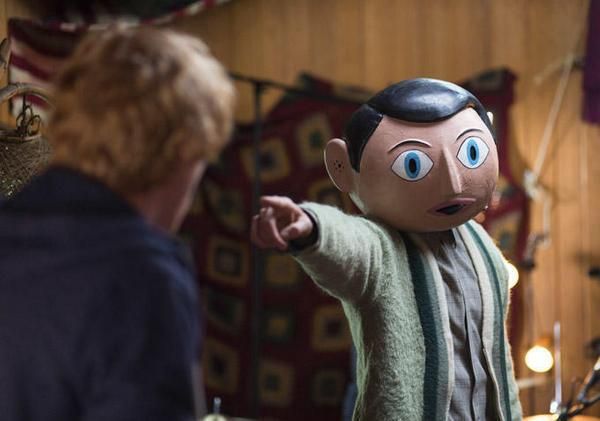
20. Frank
Directed by Lenny Abrahamson
Two straight years that we’ve had a great movie that deals with mental illness in an honest and respectful manner (in 2013 we had Silver Linings Playbook). The premise for Frank is one of the strangest in recent memory: Jon (Domhnall Gleeson) gets a chance to join the band “Soronprfbs”, whose lead singer is Frank (Michael Fassbender). Frank incidentally wears a paper-mache head, which he never takes off. Ever. I seriously wondered if such a wack idea could hold up for a feature length film (it did). Frank is a wonderful and funny movie about people and their problems, acceptance, creativity, fame, and our genuine selves.
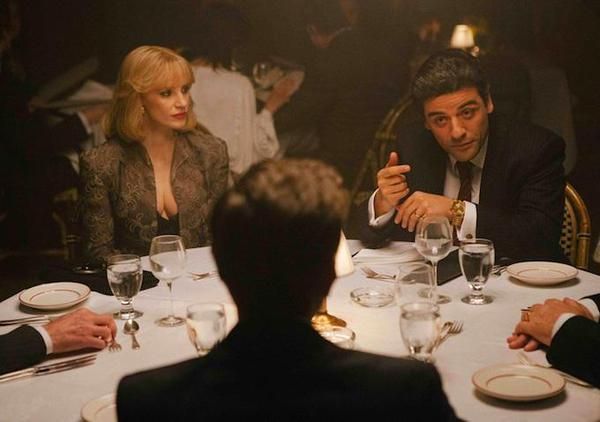
19. A Most Violent Year
Directed by J.C. Chandor
An operatic, powerfully-acted, Godfather-like story about trying to stay incorruptible in a corrupt world, and balancing between what is right and what it is we desperately want. I’ve heard critics praise Oscar Isaac’s performance as being like Al Pacino’s Michael Corleone, with his quiet power and burning eyes, and those comparisons are warranted. I’m kinda in love with Oscar Isaac and Jessica Chastain too, I wish they were in every movie.
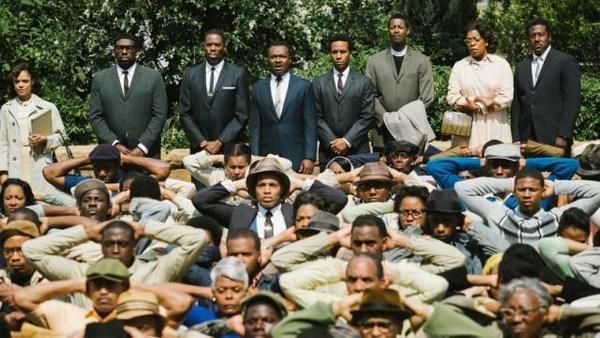
18. Selma
Directed by Ava DuVernay
Selma blows other historical period dramas out of the water (looking at you, The Imitation Game and The Theory of Everything). There’s a truth in Selma that was missing in those other two (yeah ok I actually haven’t seen Theory, but who cares). Selma didn’t try to make saints out of historical figures; it just showed flawed people who do the right thing. It was refreshing to have a movie not talk down to or treat the viewers like children. David Oyelowo was tremendous; the film had an assured direction, was visually interesting, and had a few moments that moved me to tears, including one Battleship Potemkin-like scene that had me (and the country) in horror.
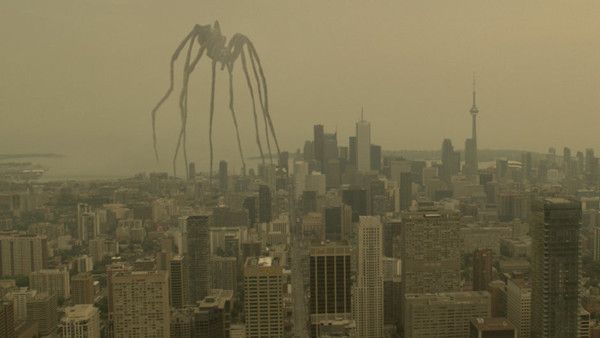
17. Enemy
Directed by Denis Villeneuve
Probably the most unsettling movie of 2014. It’s hard to talk about what the movie is about….just know that it’s about Jake Gyllenhaal’s character kind of losing his mind. This movie creates a creepy atmosphere using a combination of color schemes, pacing, strange surrealist visuals, and a foreboding score. If you’ve seen anything by David Lynch, you know what I’m talking about.
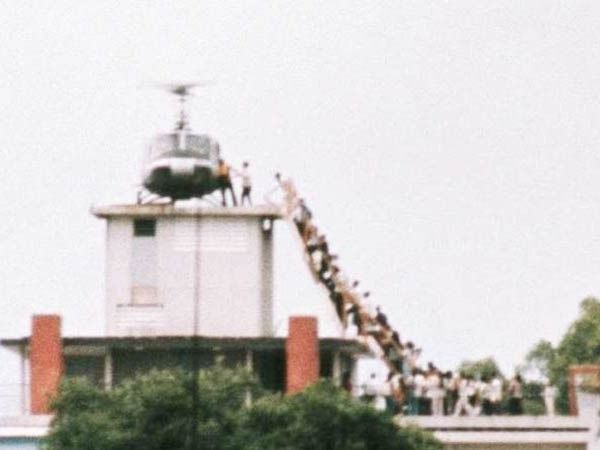
16. Last Days in Vietnam
Directed by Rory Kennedy
An intimate look at a shocking time in history: the evacuation of Saigon in April of 1975. They did an incredible job with this documentary, with the perfect blend of interviews of people who were there to footage and photographs of the event itself. Having lived in the Philippines and Thailand, I could imagine the seas of people, the desperation, the heat, and the fear of the families. The story is told very well, giving day by day and eventually hour by hour accounts. Protocol had broken down, and here we were scrambling trying to do the right thing, but we had messed up so many times that trying to do the right thing was too little and too late. It made me look at current conflicts in a new light.
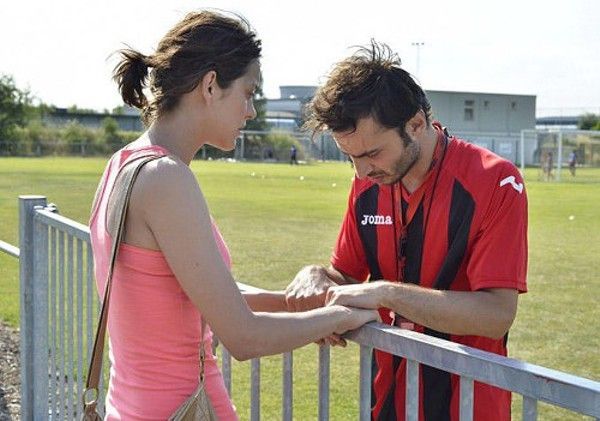
15. Two Days, One Night
Directed by Jean-Pierre and Luc Dardenne
The Dardenne bros always make me feel some serious feels, with their simple, humanist stories about modern, common problems. They are so good at making societal commentary in a very tasteful but direct way. In Two Days, One Night, Sandra (played by the effervescent Marion Cotillard) is informed that she is being laid off from her work because her co-workers voted to receive a bonus instead of keeping her on. Sandra has just recovered from an accident, she has serious social anxiety, and she’s dependent on her pain killers. Watching her try to convince her coworkers to keep her was a harrowing experience, but it made me think about what our priorities as a society are/should be. Also Marion Cotillard is just wonderful, I wish she had one Best Actress.
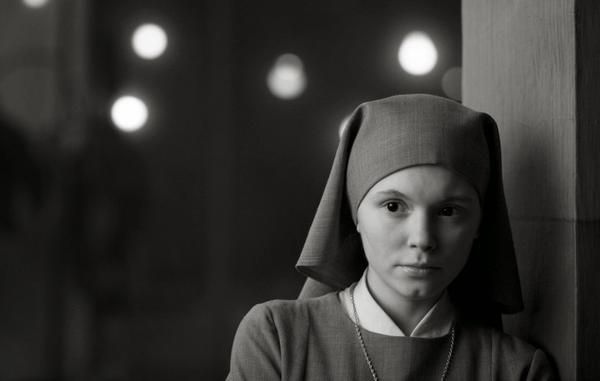
14. Ida
Directed by Paweł Pawlikowski
Contemplative, elegant, and minimalist drama. Set in Poland in 1962, young Anna is about to take her vows at the convent, where she was raised as an orphan. She then learns from her only living relative that her name is actually Ida, and that her parents were Jews murdered during the German occupation. Not much is explained, there’s not much dialogue, the viewer just gets lost in Ida’s deep, dark, seeing eyes. The whole movie is brilliantly crafted and was quietly dignified in an unpretentious way. A very deserved win for Best Foreign Picture.
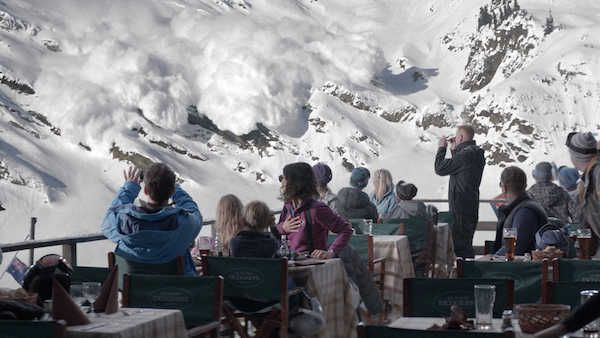
13. Force Majeure
Directed by Ruben Östlund
A Swedish family skiing in the Alps has family drama after a small scare - and we dive into a story of family, male nature, female nature, existentialism, primal fear, and conflicting instincts. The film is beautifully shot, and not just in a way that captures some of the beauty of the Alps. I mean, it’s cool to have beautiful shots of nature in your movie, but that doesn’t make great cinematography or a good film (looking at you Walter Mitty). The shots of the mountains, sheer cliffs, and snow gave me a feeling of the cold hardness of nature, especially seeing the modern ski resort tucked within the majestic and indifferent mountains. It made me think of how little regard nature has for our values and our civilization; and how our civilization and institutions will be long gone before the mountains. Not really thrilling cinema, but very provocative.
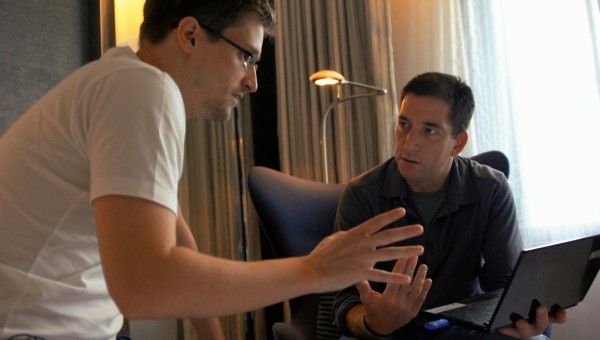
12. Citizenfour
Directed by Laura Poitras
We are all familiar with the story of Edward Snowden. What I didn’t realize is that along with Glenn Greenwald, Snowden was also meeting with filmmaker Laura Poitras, who documents the period when Snowden was making the leaks. The entire time I had the feeling that I was watching something incredibly important. The first thing the movie does well is describing the issues at hand: privacy, civil liberties, overreach and lack of accountability of intelligence agencies, etc. The film was able to describe the implications of what Snowden was revealing, which is what people (including myself) struggle to comprehend. The second thing this movie does is giving us a “fly on the wall” perspective of Snowden’s eight days or so in Hong Kong AS it happened. Poitras took us right there, literally IN Snowden’s room. Pretty amazing. One of the best documentaries I’ve seen.
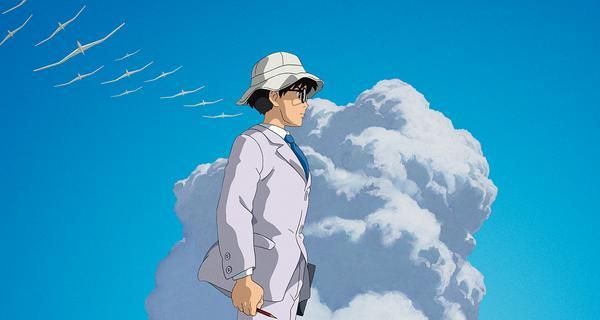
11. The Wind Rises
Directed by Hayao Miyazaki
A fictionalized biopic of Jiro Horikoshi, who desinged the Japanese Zero fighter plane used in WWII. The Wind Rises is rich, moving, tragic, soaring, and achingly beautiful. “The wind is rising!...We must try to live!” is the poetic line (by French poet Paul Valery) repeated throughout and it is a very succinct summary of the movie’s main theme of seizing life while we can. We are treated to soaring dream sequences that gives us an intimate and dramatized look at Jiro’s dreams and aspirations. An animated film with a story for adults.
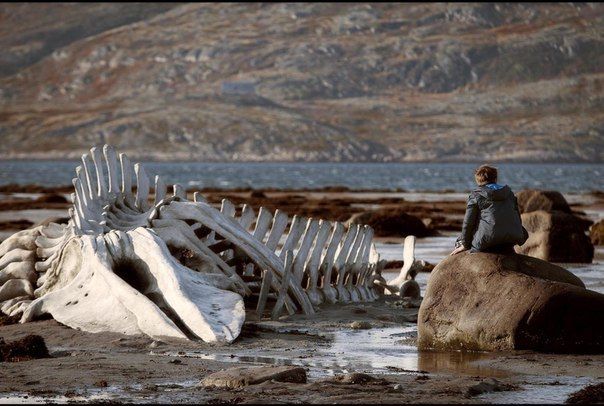
10. Leviathan
Directed by Andrey Zvyagintsev
Aptly named, this is a monstrous and heavy movie. Which is kind of interesting because it’s mostly about a man and his family, and their efforts to keep his house. One critic I believe called it “both intimate and grand”, or something to that effect. In the movie, the Book of Job is referenced, which is a rich example of the chaotic and unjust nature of the universe, and of man’s vain attempts to make sense of it all and to control his situation (think The Tree of Life and A Serious Man). The visuals are fittingly expansive, stark, and cold. While I’ve never been to Russia, I imagine this movie is one of those cutting indictments that expose the state of a country. I guess the silver lining is that as critical and bleak as this movie is, it was still allowed to be made.
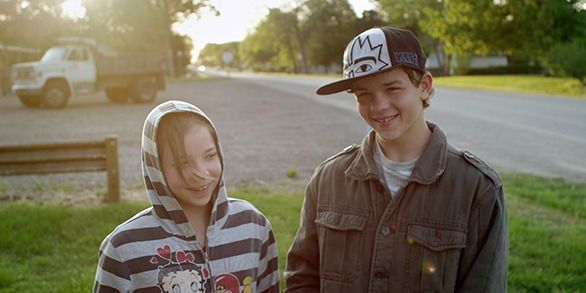
9. Rich Hill
Directed by Andrew Droz Palermo and Tracy Droz Tragos
An astounding documentary about the lives of three boys from impoverished families in a small Missouri town. Nothing too crazy happens; we just get to follow these kids around for a bit and get a very good look into the lives of the kind of kids that we usually forget about or don’t care about. “White trash” America is kind of a neglected and dismissed demographic, despite being a huge chunk of our country. Not all have the same level of poverty as these boys, but I’m afraid their situation is probably pretty common. They seem to have no chance - their parents aren’t raising them well, and they seem to be on an unavoidable collision course with a rough life and missed potential. That’s the heart breaking part, we see these kids and they aren’t trash, they’re just kids who want to be happy, loved, and successful.
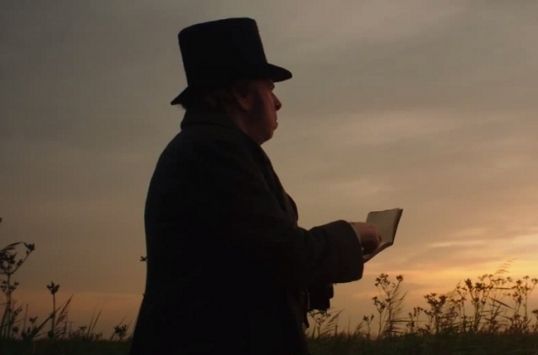
8. Mr. Turner
Directed by Mike Leigh
A very obtuse biopic about J.M.W. Turner, an English painter in the 19th century. There’s very little story, we just follow Turner around for a couple decades and see various chapters in his life. Turner has a unique way of seeing the universe around him, and in ways he is very caring and passionate. In other ways he is cold and distant. Most period pieces about previous centuries have a pristine grace in the way people dress and talk (think of every Jane Austen adaptation ever), so we tend to think of these times as refined and dignified. Mr. Turner does the complete opposite; the characters are rough, passionate, ugly, and often ridiculous. This is a fascinating movie about art and artists, and how “the universe is chaotic, and [artists like Turner] make us see it.”
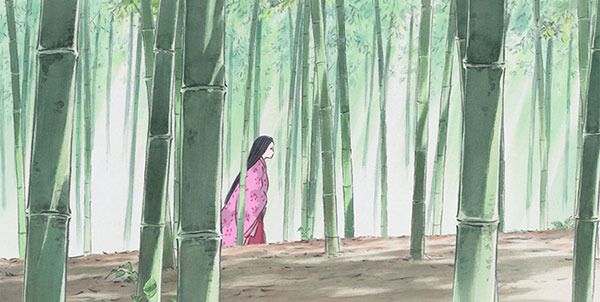
7. The Tale of Princess Kaguya
Directed by Isao Takahata
If Spirited Away and Howl’s Moving Castle are beautiful, dream-like fantasies, The Tale of Princess Kaguya is a timeless, fairy-tale like fantasy. Takahata is much more minimal in his animation and magic than Miyazaki, and it almost comes as refreshing contrast. The animation style reminds me of Edo-style art, with the simple faces and fuzzy edges. The simplicity of Kaguya is deceiving; there are some very complex and subtle themes and elements going on about the ideas of paradise, heaven on earth, freedom, controlling others, expectations for children, and fate. The more I think back on it the more I like it.
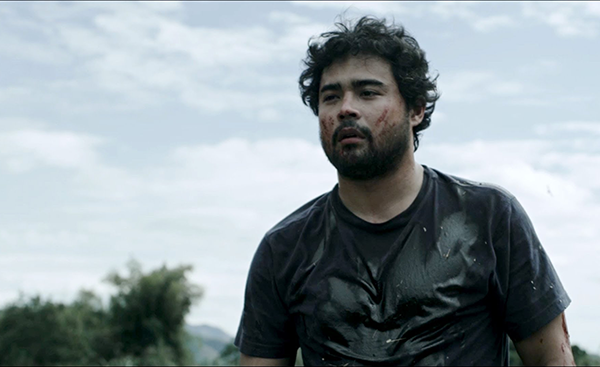
6. Norte, the End of History
Directed by Lav Diaz
A mammoth 4 hour Dostoyevsky-esque film about a young man who is disillusioned by the world around him. This is what I would call “contemplative cinema”, which is a fancy way of saying that it’s really slow and has long, long takes. So long that you can sit there and think about what is happening and what is going through a character’s mind. By the end of the movie I was in a meditative and brooding state, deep in thought about things I had never considered. That’s a win in my book. Also this was the first Filipino film I’ve ever seen; it was great to see my old stomping grounds.
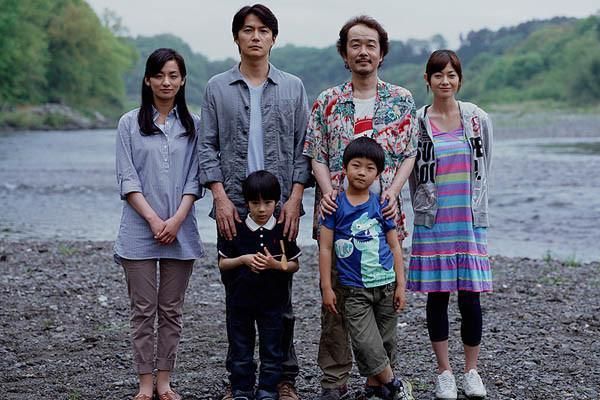
5. Like Father, Like Son
Directed by Hirokazu Koreeda
One of those family dramas in which the viewer feels sympathy for people from both sides of the situation, because Koreeda has a clear compassion for his imperfect characters. What struck me about this movie is how well directed the actors were, especially the kids. Koreeda was able to work with very young children, and we are rewarded with incredible performances. This makes the story all the more heart-wrenching, as the children are the ones most affected by the adult problems.
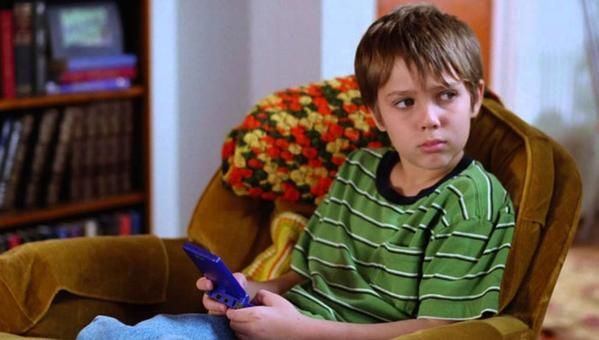
4. Boyhood
Directed by Richard Linklater
It’s hard to think of something that hasn’t already been said about Boyhood, so I’ll just repeat others. I saw myself in Mason’s journey into adulthood (I’m not too far removed from my own boyhood). In many scenes he is just silently observing those around him, taking in what is happening. These are what make a person: a Saturday with your dad, a fight at the dinner table, pressure from friends to do something stupid, first love, etc. Linklater tells the story not of a challenge in Mason’s life, or of something that he does, but the story of Mason HIMSELF.
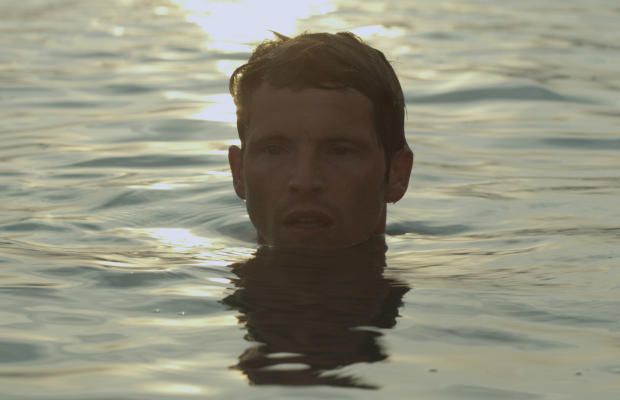
3. Stranger by the Lake
Directed by Alain Guiraudie
Meditative and terrifying. Through shots like a single person bobbing in the middle of a lake, the film explores themes of loneliness and fear, of lonely people drifting alone in existence, looking desperately for someone to cling to. This is another movie that takes its time, with relatively few cuts and almost no camera movement. This allows the dark tones and atmosphere to settle and become thick. The movie has stuck in my mind, although I wouldn’t recommend it to many people.
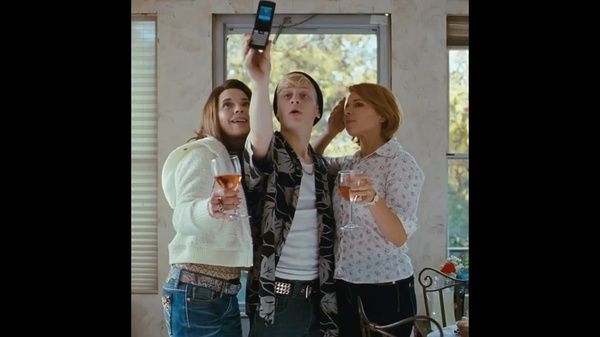
2. Mommy
Directed by Xavier Dolan
Watching the trailer I noticed that the aspect ratio for Mommy is 1:1, where most movies are like 1.33:1 to as wide as 2.33:1. The result of 1:1 ratio are these thick black bars on the sides of the picture, making it all feel like a smartphone video taken vertically. I was pretty nervous about that, but it actually services the story very well. Young Steve is a troubled kid who is being kicked out of school, leaving it up to his struggling mother to raise and homeschool him. The movie is extremely uncomfortable at times (the 1:1 ratio making it even more claustrophobic and chaotic), but you really start to feel for the kid and his mother. It’s a movie about needing one another, bringing out the best in one another, and the joy and pain that we give each other.
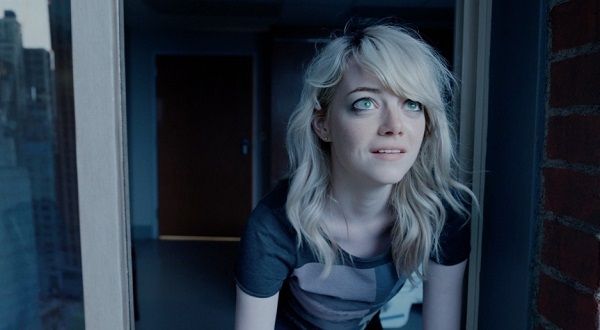

1. Birdman
Directed by Alejandro G. Iñárritu
It’s not very often that I agree with the Best Picture winner for the Academy Awards. It’s hard for me to talk about Birdman without completely gushing about it, because I think I actually love every single thing about it. The acting, the visual style, the writing, the story, the music, the messages and themes, everything works at the highest level. The story is simple enough: Riggan Thompson (played brilliantly by Michael Keaton) is a washed up Hollywood actor who used to play “Birdman” back in the 90s. He’s getting older, his star has faded, and he’s desperate to validate himself artistically, so he’s adapting for stage a Raymond Carver story. Like many of us, he is trying to make himself feel important and relevant, despite the reality of an indifferent universe and inevitable decay and death. I saw it three times in theaters, each time I was enthralled by the craft and art I was seeing.
Whew I think 20 is plenty. Let me know what you think. What were your favorite films? Can’t wait for another year of movies!





















